File Info
| Exam | Networking Fundamentals |
| Number | 98-366 |
| File Name | Microsoft.98-366.ExamLabs.2019-05-21.105q.tqb |
| Size | 2 MB |
| Posted | May 21, 2019 |
| Download | Microsoft.98-366.ExamLabs.2019-05-21.105q.tqb |
How to open VCEX & EXAM Files?
Files with VCEX & EXAM extensions can be opened by ProfExam Simulator.
Coupon: MASTEREXAM
With discount: 20%
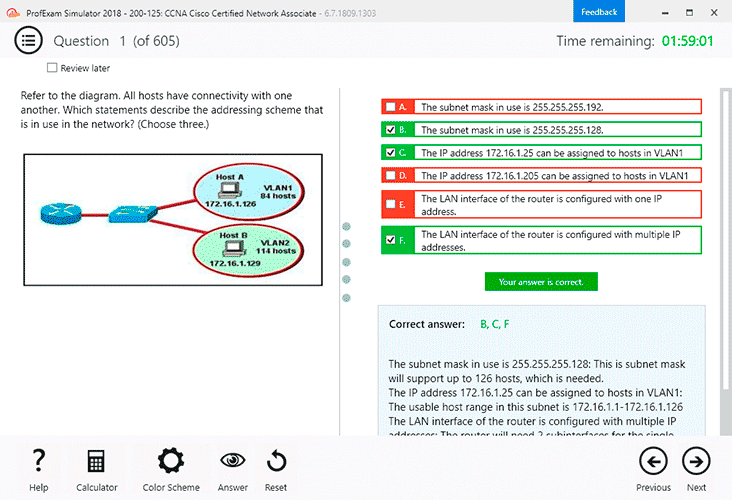
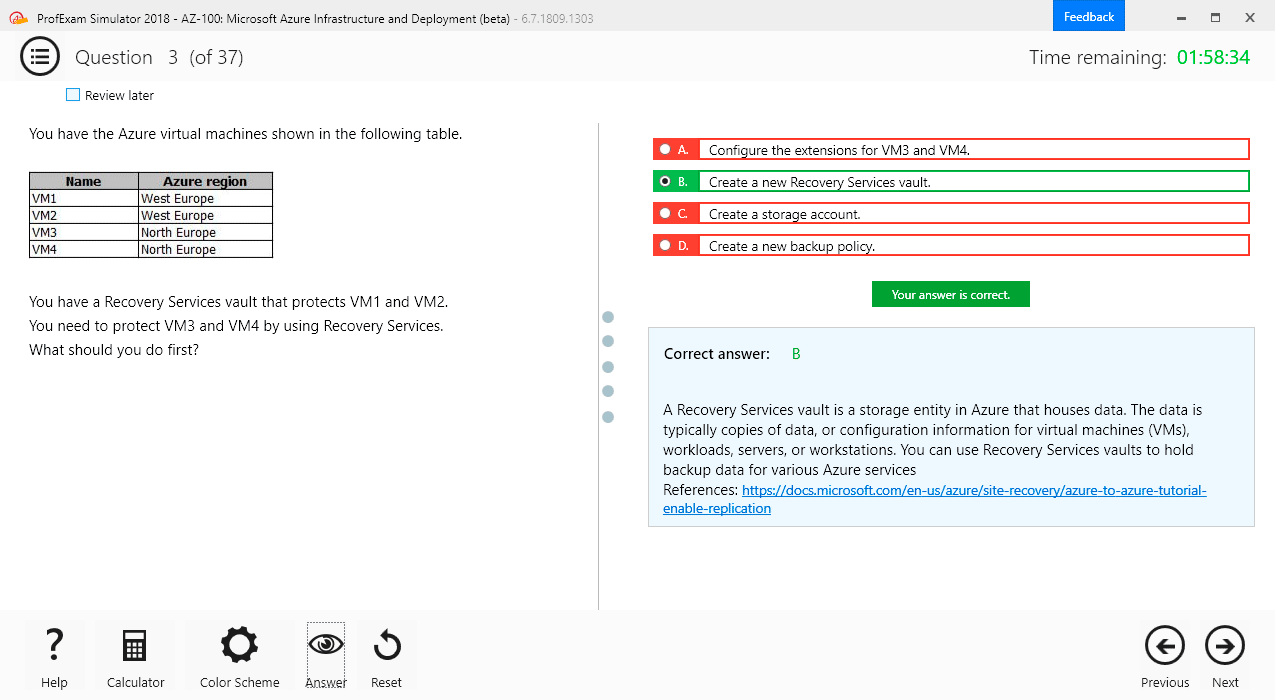
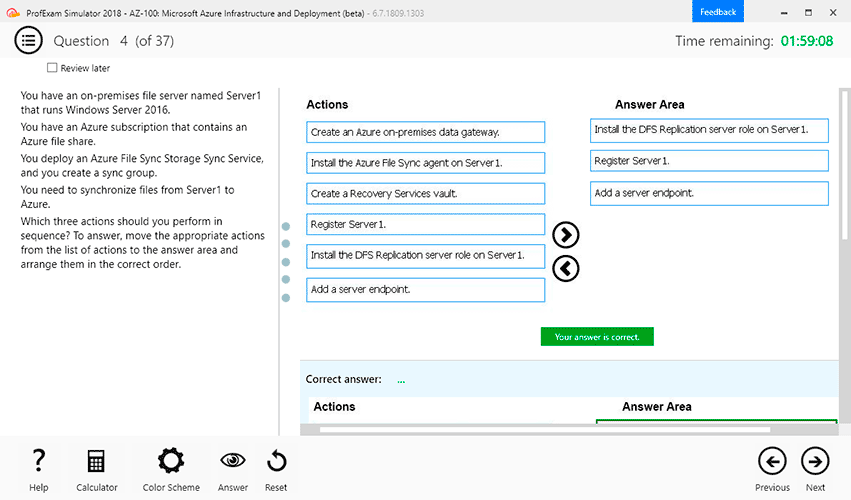
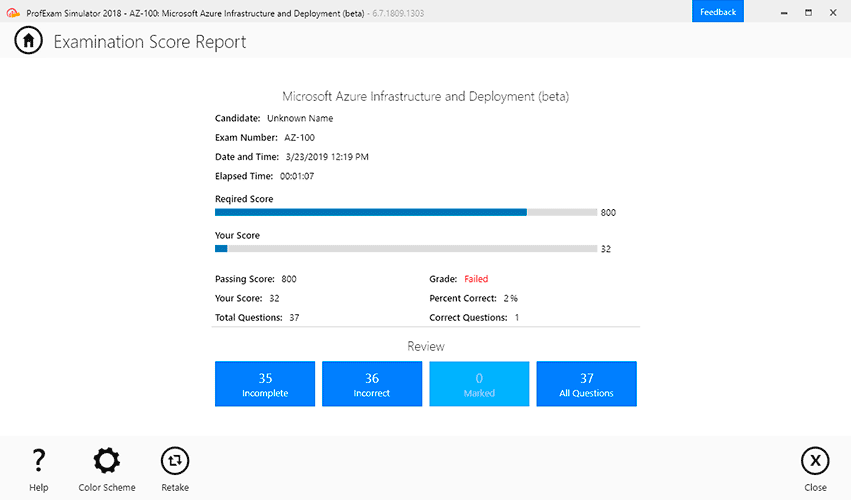
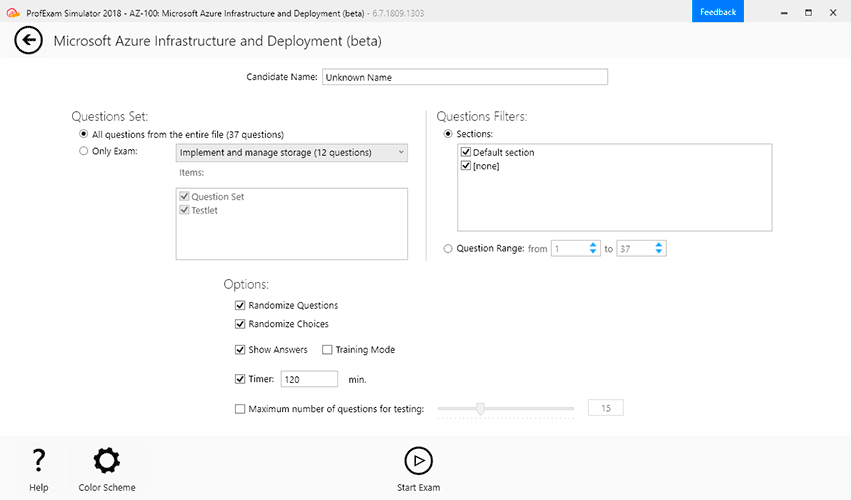
Demo Questions
Question 1
One advantage of dynamic routing is that it:
- Automatically maintains routing tables.
- Limits traffic derived from routing protocols.
- Reduces broadcast traffic.
- Automatically enables DHCP.
Correct answer: A
Explanation:
Dynamic Routing, also called adaptive routing, describes the capability of a system, through which routes are characterized by their destination, to alter the path that the route takes through the system in response to a change in conditions. The adaptation is intended to allow as many routes as possible to remain valid (that is, have destinations that can be reached) in response to the change. Dynamic Routing, also called adaptive routing, describes the capability of a system, through which routes are characterized by their destination, to alter the path that the route takes through the system in response to a change in conditions. The adaptation is intended to allow as many routes as possible to remain valid (that is, have destinations that can be reached) in response to the change.
Question 2
Which of the following represents a Media Access Control (MAC) address?
- GV:ZC:KK:DK:FZ:CA
- 255.255.255.0
- 05:35:AB:6E:Al:25
- 127.0.0.1
Correct answer: C
Explanation:
The standard (IEEE 802) format for printing MAC-48 addresses in human-friendly form is six groups of two hexadecimal digits, separated by hyphens (-) or colons (:), in transmission order (e.g. 01-23-45-67-89-ab or 01:23:45:67:89:ab ). The standard (IEEE 802) format for printing MAC-48 addresses in human-friendly form is six groups of two hexadecimal digits, separated by hyphens (-) or colons (:), in transmission order (e.g. 01-23-45-67-89-ab or 01:23:45:67:89:ab ).
Question 3
Connecting to a private network address from a public network requires:
- Network address translation (NAT).
- Dynamic Host Configuration Protocol (DHCP).
- Network Access Protection (NAP).
- Dynamic domain name system (DDNS).
Correct answer: A
Explanation:
The majority of NATs map multiple private hosts to one publicly exposed IP address. In a typical configuration, a local network uses one of the designated "private" IP address subnets (RFC 1918). A router on that network has a private address in that address space. The router is also connected to the Internet with a "public" address assigned by an Internet service provider. The majority of NATs map multiple private hosts to one publicly exposed IP address. In a typical configuration, a local network uses one of the designated "private" IP address subnets (RFC 1918). A router on that network has a private address in that address space. The router is also connected to the Internet with a "public" address assigned by an Internet service provider.

